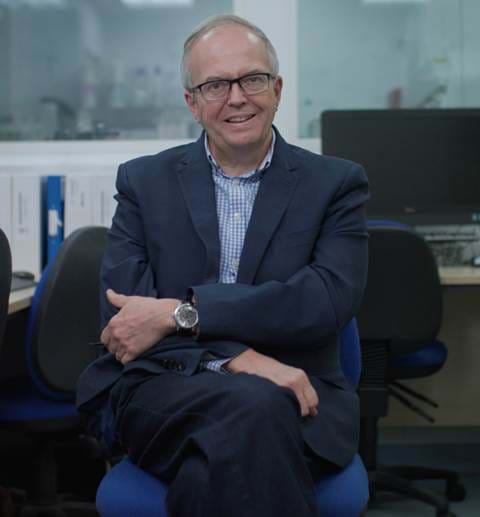25 Years of DRWF Research
In 2023, we will be celebrating the 25th anniversary of DRWF, marking 25 years of supporting people living with diabetes in the UK. Thanks to our supporters, we have helped fund vital research projects at the very best research institutions in the UK and around the world.
Since our formation in 1998, diabetes research has come a long way in improving the lives of people living with diabetes. New technological advances in glucose monitoring and insulin delivery have improved the management of diabetes for millions of people. With future innovations like the closed-loop system and Islet Cell transplant on the horizon, hopes for a future cure are brighter than they’ve ever been.
25 Years of DRWF Research
DRWF has made a significant contribution to advancing our understanding of diabetes and its complications. Over 25 years, we have funded award-winning research across the UK, as well as becoming a lead funder of Islet Cell transplant research. Our Islet Cell funded research programme has made a life-changing difference for a small number of people living with type 1 diabetes, as well as providing hope of a future cure for the wider diabetes community.

Islet Cell Research
In 2004, we made an unprecedented grant for an Islet Isolation Facility at the Nuffield Department of Surgery at the Radcliffe Hospital, Oxford. The DRWF Human Islet Isolation Facility opened in 2006 and has since played a pivotal role in Islet Cell Transplant research.
Islet cell transplantation involves extracting islet cells from the pancreas of a deceased donor and implanting them in the liver of someone with type 1 diabetes. First, islets are extracted from someone who has died and given consent for their organs to be used for transplantation. If this produces a suitable number of good quality islets, they can be offered to someone in need of a transplant.
For World Diabetes Day 2022, we produced a short documentary highlighting the success stories from DRWF-funded research and support. You can watch Our Heroes here.
Award Winning Research
Our funded researchers have also won prestigious awards for their work. Dr Shivani Misra, a member of the DRWF board of trustees, won the 2017 IDF Europe Prize for young researcher for her MY DIABETES study.
In 2018, Dr Misra was named in the Evening Standard 1000 health influencers for her work on the misdiagnosis of thousands of patients due to misconceptions about the role of ethnicity and diabetes. She also received the Outstanding Educator Award at the 2021 QIC awards for her MY DIABETES study.
DRWF has also worked collaboratively with other leading UK diabetes charities and medical institutions on important research. In 2020, we part-funded a project into gestational diabetes, which revealed the top 10 unanswered questions of pregnant women living with diabetes.

Continuous Glucose Monitors (CGM)
When the first blood glucose monitor was developed in 1971, it was globally hailed as a significant step in advancing the care of people living with diabetes. For the first time, meters enabled people to self-monitor their blood glucose levels at home. As the accuracy and portability of meters improved, they became the standard method of rapid blood glucose testing for both patients and healthcare professionals.
In 1999, the next step in blood glucose testing was revealed as Medtronic released the world’s first continuous glucose monitor (CGM). The Sof-sensor was a small, wearable device which continuously tracked a user’s blood glucose levels throughout an entire day. Medtronic’s first sensor, the Sof-sensor, was a significant development in diabetes technology which has since improved greatly.
Modern CGM systems are designed to be small, comfortable devices which can be scanned using a smartphone, allowing for Bluetooth pairing for glucose and signal loss alarms. In recent years, Abbott’s FreeStyle Libre, a flash glucose monitor which continuously stores glucose data, has been made available on the NHS for people living with diabetes.
In 2022 the Dexcom One became the first real time-continuous glucose monitor (rt-CGM) available in pharmacies in the UK. The monitor requires no scanning and eliminates the need for finger-pricking tests.
By 2021, CGMs have become more widely available to patients living in the UK thanks to an NHS roll-out for people living with type 1 diabetes. Figures released by NICE found that 125,000 people living with type 1 diabetes were using life-changing CGM’s to manage their condition, eliminating the need for daily finger-pricking to check glucose levels.


Insulin Delivery
Injections have been the standard practice of administering insulin for over 100 years, ever since the discovery of the life-saving drug in 1921. To the present day, millions of people living with type 1 and type 2 diabetes use daily injections of insulin to control their glucose levels.
Similar to glucose monitoring systems, insulin pens now incorporate modern technology to maximise their potential. Smart insulin pens, which have an inbuild memory function to record the timing, date and amount of insulin administered, work alongside smartphone apps to monitor when a user should inject insulin.
Whilst the quality of hypodermic needles, injectable insulin and delivery pens have gradually improved over time, the next biggest breakthrough for insulin delivery is a move away from daily injections.
The only other alternative delivery system, insulin pumps, have rapidly advanced since their introduction in the 1980’s. Over the past two decades, alongside the creation of CGM’s, the closed-loop system (also known as the “artificial pancreas”), is now offering a new alternative for people with diabetes.
The hybrid closed loop system consists of a continuous glucose monitor (CGM) sending information to and working simultaneously with an insulin pump. After the CGM sends information on glucose levels to the insulin pump, a calculation is run to establish how much insulin needs to be administered to keep blood glucose levels within a healthy range.
The closed-loop system has been widely praised by researchers and recent draft guidelines have suggested that the new technology could benefit 105,000 people living with type 1 diabetes in the UK.